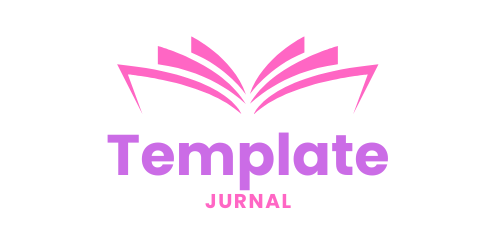TRANSAKSI JUAL BELI CENGKEH SISTEM TENDER DI DESA SALUSANA KECAMATAN LAROMPONG (DALAM PERSEPEKTIF EKONOMI ISLAM)
DOI:
https://doi.org/10.24256/joins.v2i1.1499Abstract
Abstract
 This study is used to describe how the system of buying and selling cloves in Salusana Village, Larompong sub-district in the perspective of Islamic economics, with the problem of How to deal with clove buying and selling in Salusana Village, Larompong District, How are the clove sale and purchase transactions in the tender system in Salusana Village, Larompong District (In the Economic Perspective Islam), the aim is to find out the sale and purchase of cloves in Salusana Village, Larompong Subdistrict, To find out the sale and purchase of cloves in the tender system in Salusana Village, Larompong Sub-District (In the Islamic Economy Perspective), the method used in this study is descriptive qualitative research type. This uses a qualitative approach, data sources namely primary data sources and secondary data sources, data collection techniques namely by interviews and documentation, and Data Analysis Methods namely inductive and deductive. Based on data from the results of research conducted, it can be concluded that the practice of buying and selling cloves with a slash system that occurs in Desa Salusana Village, Larompong District consists of 2 (two) types of slash systems, namely: wohan slash and pruning slash, Practice of buying and selling clove slash systems in Salusana Village, Larompong Subdistrict both pruning or wohan cutting, according to Islamic law is permissible because it has fulfilled the terms and conditions of sale and purchase. The practice of buying and selling slash systems in Salusana Village that does not contain the gharar element is a small risk of loss.
Keywords: Buying and selling; tender system
Abstrak
 Penelitian ini digunakan untuk memaparkan bagaimana transaksi jual beli cengkeh sistem di Desa Salusana kecamatan Larompong dalam Persfektif ekonomi Islam, dengan masalah Bagaimana transaksi jual beli cengkeh di Desa Salusana Kecamatan Larompong, Bagaimana transaksi jual beli cengkeh sistem tender di Desa Salusana Kecamatan Larompong (Dalam Perspektif Ekonomi Islam), tujuannya adalah Untuk mengetahui Transaksi jual beli cengkeh di Desa Salusana Kecamatan Larompong, Untuk mengetahui  transaksi jual beli cengkeh sistem tender di Desa Salusana Kecamtan Larompong (Dalam Perspektif Ekonomi Islam), Metode yang digunakan dalam penelitian ini yaitu Jenis Penelitian kualitatif deskriktif, Penelitian ini menggunakan pendekatan kualitatif, sumber data yaitu sumber data primer dan sumber data sekunder, tehnik pengumpulan data yaitu dengan wawancara dan dokumentasi,  serta Metode Analisis Data yaitu induktif dan deduktif. Berdasarkan data dari hasil penelitian yang dilakukan, dapat disimpulkan bahwa Praktek jual beli cengkeh dengan sistem tebasan yang terjadi di Desa Desa Salusana Kecamatan Larompong  terdiri dari 2 (dua) macam sistem tebasan, yaitu: tebasan wohan dan tebasan pangkasan, Praktek jual beli cengkeh sistem tebasan yang ada di Desa Desa Salusana Kecamatan  Larompong    ini  baik  tebasan  pangkasan  ataupun  tebasan  wohan,  menurut  hukum  Islam diperbolehkan karena sudah memenuhi syarat-syarat dan rukun jual beli. Praktek jual beli sistem tebasan yang ada di Desa Salusana tidak mengandung unsur gharar yang ada adalah resiko kerugian kecil.
 Kata Kunci : Jual beli; system tender
Â
DAFTAR PUSTAKA
 Amiruddin dan Zaenal Asikin, Pengantar Metode Penelitian Hukum, Jakarta: Raja Grafindo Persada, 2004
 Ash-Shan’ani Muhammad bin Ismail al-Amir Subulus Salam, Jakarta: Darus Sunnah Press, 2013
 Bapak Munjaid selaku makelar (blantik) cengkeh di Desa Salusana. Wawancara dilakukan pada tanggal 17 Juni 2016
Bapak Kurdi selaku penebas cengkeh dari Desa Salusana. Wawancara dilakukan pada tanggal 17 Juni 2016
 Bapak Kurdi selaku penebas cengkeh dari Desa Salusana. wawancara dilakukan pada tanggal 17 Juni 2016
Departemen Agama RI, Al-Quran dan terjemahan, Surabaya: Tri Karya, 2005
 Ibu Milatus Salihah selaku pemilik pohon cengkeh di Desa Salusanao. Wawancara dilakukan pada tanggal 17 Juni 2016
Kasmiran Moh, Metodologi Penelitian, Malang: UIN Malang Pers, 2008
 Muhammad Abdul kadir, Hukum Perikatan, Bandung: Penerbit Aluni, 1982
 Pendidikan  islam,  http://www.masuk-islam.com/pembahasan-jual-kuarng-beli-dalam-islam- lengkap-pengertian-rukun-dalil-dan-syarat-jual-beli.html,  diakses  tanggal  15  januari2016.
 Shihab M .Qurais, Tafsir al Mibah: pesan, Kesan dan Keserasian al-Qur’an, Vol. 11, Jakarta:Lentera Hati
 Suharjo dan Ana Retnoningsih, Kamus Besar Bahasa Indonesia, semarang: Widya Karya,2011,h.538
 Suhendi Hendi, Fiqih muamala, Jakarta: Raja Grafindo Persada, 2010
 Strauss Anselm dan Juliet Corbin, Dasar-Dasar Kualitatif, Yogyakarta: Pustaka Pelajar, 2009
 Sugiyono, Metode Penelitian Kuantitatif Kualitatif dan R&D, Bandung: Alfabeta, 2011,
 Syafe’I Rahmat, Fiqih Muamalah, Bandung: Pustaka Setia, 2001
 Syarifuddin Amir, Garis-Garis Besar Fiqih Islam, Jakarta:Penada Media, 2003
 Ya’qub Hamzah, Kode Etik Dagang Menurut Islam, Bandung: Diponegoro, 1992
Â
Downloads
Additional Files
Published
Issue
Section
Citation Check
License
Authors who wish to publish and disseminate their papers with the Journal Of Institution And Sharia Finance shall agree to the publishing rights set by Journal Of Institution And Sharia Finance Authors understand that they shall assign publication right to as part of the process upon acceptance for publication. Authors agreed that they will transfer certain copyrights to Journal Of Institution And Sharia Finance. Consecutively, authors still retain some rights to use and share their own published articles without written permission from Journal Of Institution And Sharia Finance.
Authors granted Journal Of Institution And Sharia Finance. these following rights; (1) the right to publish and provide the manuscripts in all forms and media for the purpose of publication and dissemination, (2) the authority to enforce the rights in the manuscript, for example in the case of plagiarism or in copyright infringement.
Journal Of Institution And Sharia Finance will follow COPE’s Code of Conduct and Best Practice Guidelines for Journal Editors to protect the research results and takes allegations of any infringements, plagiarisms, ethical issues, and frauds should those issues arise. The manuscript is attributed as authors' work, and are properly identified.




